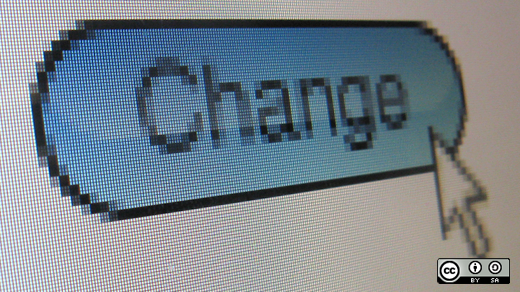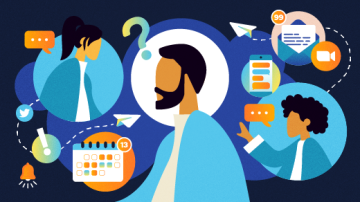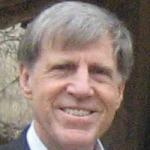In the first and second articles of this series, I presented my review of Professor Lynda Gratton's book, The Shift: The Future of Work is Already Here. Those articles outlined the factors Gratton says will impact work in the future and the work environments those forces will likely create for us. I also reviewed how Gratton believes people will (and should) respond to those forces. And I demonstrated that many of her recommendations have roots in open organization principles.
In this third and final part of the review, I'll summarize Gratton's view of three habit changes people will have to undertake if they plan to be successful at work in the future.
The shift(s)
As Gratton writes, "Around the world, outdated hierarchies will crumble; notions of nine-to-five working will come under immense pressure; and those who in the past would have been disadvantaged will have the opportunity to join the global talent pool." She continues:
The pleasures of the traditional working role were the certainty of a parent-child relationship. You could leave it in the hands of the corporation to make the big decisions about your working life. The adult-adult relationship we are moving towards is healthier and more capable of creating meaning.
To be successful in this future environment, however, you must (1) be willing and able to learn, (2) be able to build social networks among diverse individuals, and (3) have the emotional drive to make hard choices that will create happiness for you and others.
There are the three "shifts" to which Gratton alludes in the title of her book. Let me explain each one.
Shift 1: Continually specializing in targeted skills
"What that means in reality," Gratton writes, "is to both understand the skills and competencies that will be at a premium, and also know how best to develop them." Gratton calls this "serial mastering," which is the act of repeatedly learning through drills, practice and repetition, so you can professionally apply new skills. Sometimes role-playing and having fun, playful game creation can be the best methods for skill development. But in Gratton's view, this work involves far more than simply studying concepts. It's also ongoing, as new skills will come into demand while the demand for others fades. As we question what skills will be necessary in the future, answers will more than likely come from front-line communities than from governments or large organizations. Here again, community development becomes critical. Using Gratton's term, one might say that "creative clusters" will be formed by people interested in learning and researching a particular topic, challenge, or problem. You can do this by joining professional associations, becoming a member of virtual guilds or craft unions, or by looking for skills that are adjacent to your current skill set and interests. In Gratton's words: "We need the knowledge and depth of the eighteenth-century artisan, and at the same time the knowledge and depth of networks that enabled division of labor to be formed in the late nineteenth century." Simply put, people will need to be both broad and targeted in developing skills if they're going to be successful in their careers.
While you're stretching out of your comfort zone, you'll need to imagine and spot openings, envision opportunities, or see future concerns. Thinking like this takes time and effort. Therefore, you must overcome the problem of what Gratton calls "fragmentation" (outlined in part two of this series). For example, Gratton provides the hypothetical story of Jill, who works on global projects for a multinational corporation, virtually, from the point she wakes up until she falls asleep. She jumps from virtual meeting to virtual meeting every three minutes, it seems. She barely has time or energy to relax and reflect. When would she have time to reflect and plan for the future?
Shift 2: Connecting and building strategic communities
In The Shift, Gratton states that "the traditional view of work is that you became successful through personal drive, ambition and competition. This is shifting to success coming increasingly from a subtle but high-value combination of mastery and connectivity—the combination of intellectual and social capital." This is really something to think about, as it requires us to rethink deeply held assumptions about work and success. Success in future environments, Gratton suggests, is a result of both the useful, in-demand skills we develop and the communities we both establish and participate in. So agreeing to make "Shift No. 1" is not enough. You must develop innovative networks globally around know-how and competencies, which is "Shift No. 2." This is where open organization principles can be very helpful.
In particular, Gratton elaborates two related ideas here: the posse and the big idea crowd.
"Posse": Gratton gives the example of a sheriff in a small rural town in the "wild west" era of American history. The town bank has been robbed, and the sheriff has to assemble a posse of town citizens to catch the robbers. Who should the sheriff select? The member must be well known in advance and trusted to assemble quickly. And of course, it helps if members of the posse have access to healthy horses they can ride, if they own and are able to handle a firearm, etc. In this case, the task is relatively simple, and the members should all have similar skills so they can help and encourage each other. The sheriff could attempt to pursue the bank robbers by himself, but forming a posse would increase his odds of success.The same is true in our own work projects: We often need help from other people in order to be successful. More often than not, we turn to respected colleagues we can simply call on the phone to kick ideas around. In the future, Gratton argues, we'll need to develop and expand our networks of trusted and respected colleagues. To build these networks, we must continually share (publicly, even) not just what we have achieved but what we are struggling with.
"The Big Idea Crowd": Sociologist Mark Granovetter believes in the power of "weak ties," as this is where some of the best ideas come from. For Granovetter, "weak ties" are indirect contacts—contacts of contacts, and quite often not particularly close contacts. They could even be distant acquaintances. These "weak ties" are critical to getting differing perspectives on issues or challenges. To be successful in 2025 and beyond, Gratton argues we'll need to develop a network of diverse and wide sources of information. Therefore, we have to be willing to (1) wander outside our normal experiences and circles of acquaintances, (2) change the way we interact/dress/speak with differing people to make them feel comfortable with us, and (3) show people different from us that we're interested in them and want to listen to what they have to say. That will attract them to us and the problems we're trying to tackle. Her suggestions follow the open organization principle of inclusivity.
For example, Gratton offers the story of Miguel, who has a passion for improving congestion in inner-city transport. He and others who share this passion (and concern) have looked for solutions using InnoCentive, which provides a network that brings challenges and solution suggestions together. Miguel has built a network globally, and that network has created solutions not only for his city, Rio de Janeiro, but also other cities around the globe.
Shift 3: Becoming productive at what you love
To prepare for "Shift No. 3," Professor Gratton asks readers to consider what makes them happy. In many cases, what we strive for in order to be happy may, in the end, not make us happy at all. All choices have consequences, and by reviewing what makes us truly happy we can make better choices in the future. In the past, companies, families and other influences have made many choices for us, but from now on, Gratton says, we'll be in a position to make more decisions ourselves. In the future, we will be more able to find activities that we are passionate about and assemble colleagues that share the same passions. Then, we can jointly learn, grow, and be happier together.
Consider what we consume. Does that bring us joy, or does it burden us? What about the quality of the experiences we've had? Have they brought pleasure or sorrow? As Gratton writes, "The third shift is about clarity, choices, consequences and trade-offs." What do we want, and what can we do without? These questions will become more important in the coming years. Gratton says that "the more you earn, the less you appreciate it; yet the more skilled you become in areas such as friendship and mastery, the more you enjoy it."
Researchers are currently exploring happiness on a country-wide level. In what ways can we influence the degree of happiness people are experiencing every day? Teaming with others to achieve something—and learn something—can create a great sense of fellowship, self-esteem, joy, and reward in its own right. What's more, by thinking collaboratively, communities can overcome the potential sense of isolation that Gratton warns about. That's why letting open organization principles guide our career planning in the future can lead to pleasure and rewards.








4 Comments